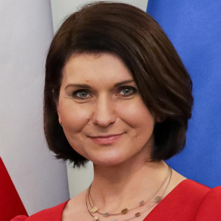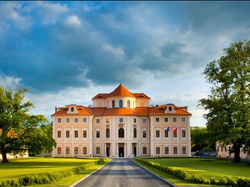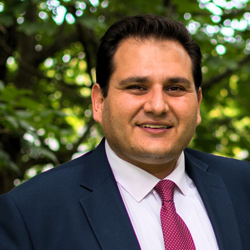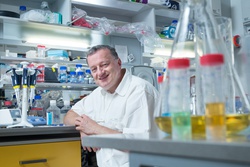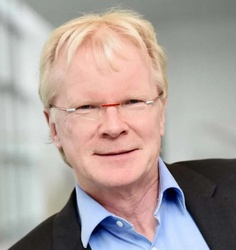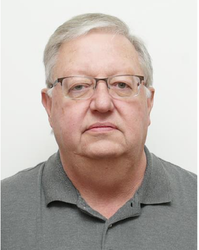Developing novel catalysts requires a comprehensive characterization of the potential and existing catalysts. The catalytic activity is intrinsically linked to the active centres of the catalyst. Therefore, it is not surprising that the question of catalytic activity is, in fact, a question of active sites. How can we identify the active sites responsible for the desired activity among many other centers? Can we also quantify these active sites? Furthermore, by differentiating between reactive intermediates and spectator species, can we understand the reaction pathway that each active site influences? The best candidates for answering these questions are IR and UV-Vis spectroscopies.
Both provide a complete picture of the catalytic process by fusing quantitative and qualitative insights. Both aid in tracking the reaction process and enhance our understanding of the role of active sites. As scientists, we still face the challenge of examining active catalysts in real "working conditions”. We investigate extremely fast processes, such as diffusion, adsorption, and rearrangement of molecules on the catalyst surface, which usually take place in fractions of seconds. Time-resolved mode (rapid scan) IR measurements supported by 2D correlation analysis and Multivariate Curve Resolution-Alternating Least Squares algorithms are extremely effective in isolating species relevant to the catalytic process from many others. This allows us to determine the sequence of events in the catalytic nanoscale world. Finally, combining spectroscopic methods with measurements of catalyst activity and selectivity, via mass spectrometry and gas chromatography (GC) analysis, facilitates the assessment of the reaction's progress in real time.
Seminars
of the department of physical and macromolecular chemistryDepartmental Seminars
The Seminars of the Department of Physical and Macromolecular Chemistry are back, and in the upcoming semester they will be organized in the following way: There are going to be guest speakers and PhD students presenting during the semester.
The lectures will take place on Wednesdays in building of Chemical departments (Hlavova 8, Praha 2) at 14:00 in lecture room CH3
There are no upcoming seminars scheduled yet
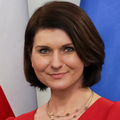
There is Still Plenty of Room for IR Spectroscopy in Catalysis
Developing novel catalysts requires a comprehensive characterization of the potential and existing catalysts. The catalytic activity is intrinsically linked to the active centres of the catalyst. Therefore, it is not surprising that the question of catalytic activity is, in fact, a question of active sites. How can we identify the active sites responsible for the desired activity among many other centers? Can we also quantify these active sites? Furthermore, by differentiating between reactive intermediates and spectator species, can we understand the reaction pathway that each active site influences? The best candidates for answering these questions are IR and UV-Vis spectroscopies.
Both provide a complete picture of the catalytic process by fusing quantitative and qualitative insights. Both aid in tracking the reaction process and enhance our understanding of the role of active sites. As scientists, we still face the challenge of examining active catalysts in real "working conditions”. We investigate extremely fast processes, such as diffusion, adsorption, and rearrangement of molecules on the catalyst surface, which usually take place in fractions of seconds. Time-resolved mode (rapid scan) IR measurements supported by 2D correlation analysis and Multivariate Curve Resolution-Alternating Least Squares algorithms are extremely effective in isolating species relevant to the catalytic process from many others. This allows us to determine the sequence of events in the catalytic nanoscale world. Finally, combining spectroscopic methods with measurements of catalyst activity and selectivity, via mass spectrometry and gas chromatography (GC) analysis, facilitates the assessment of the reaction's progress in real time.
Lecture hall CH2, Faculty of Science, Hlavova 8, Praha 2
May 28, 2025 - (14:00 )
Developing novel catalysts requires a comprehensive characterization of the potential and existing catalysts. The catalytic activity is intrinsically linked to the active centres of the catalyst. Therefore, it is not surprising that the question of catalytic activity is, in fact, a question of active sites. How can we identify the active sites responsible for the desired activity among many other centers? Can we also quantify these active sites? Furthermore, by differentiating between reactive intermediates and spectator species, can we understand the reaction pathway that each active site influences? The best candidates for answering these questions are IR and UV-Vis spectroscopies.
Both provide a complete picture of the catalytic process by fusing quantitative and qualitative insights. Both aid in tracking the reaction process and enhance our understanding of the role of active sites. As scientists, we still face the challenge of examining active catalysts in real "working conditions”. We investigate extremely fast processes, such as diffusion, adsorption, and rearrangement of molecules on the catalyst surface, which usually take place in fractions of seconds. Time-resolved mode (rapid scan) IR measurements supported by 2D correlation analysis and Multivariate Curve Resolution-Alternating Least Squares algorithms are extremely effective in isolating species relevant to the catalytic process from many others. This allows us to determine the sequence of events in the catalytic nanoscale world. Finally, combining spectroscopic methods with measurements of catalyst activity and selectivity, via mass spectrometry and gas chromatography (GC) analysis, facilitates the assessment of the reaction's progress in real time.

Liblice retreat
Wednesday 21.5.
12.00-14.00 Arrival and Accommodation
14.00-14.15 Opening and foreword – Filip Uhlík
14.15-15.30 Postdoc Lectures (10 min + 5 min discussion) – Po01 – Zhaobo Zhou, Po02 – Pavel Švec, Po03 – Subha Samantha, Po04 – M Mariyamuthu
15.30-16.00 Coffee break
16.00-16.45 Postdoc Lectures (10 min + 5 min discussion) – Po05 – Kim, Po06 – Luis Carracosa, Po07 – Carlos Bornes
16.45-19.00 Free afternoon – volleyball
19.30- Dinner at the fire (it depends on the weather)
Thursday 22.5.
9.00-10.00 Prof. Jan Černý (PřF UK): "Identity crisis" - concept of chimerism in physiology and pathology?
10.00-10.30 Lectures of PhD students (1 st year students 5-10 min + 5 min discussion, other 10 min + 5min discussion) - 01 – Talat Zakeri, 02 – Andrej Tekel
10.30-11.00 Coffee break
11.00-12.15 Lectures of PhD students - 03 – Michaela Vaňková, 04 – Saeed Salamatgharamaleki, 05 – Ipsita Padhee, 06 – Magdalena Nejedlá, 07 - Guilherme Martins
12.15-14.00 Lunch
14.00-15.30 Lectures of PhD students - 08 – Niccolo Lusiani, 09 – Anna Laštovičková, 10 – Ondrej Kopilec, 11 – Fateme Poorhsrabarf, 12 – Timea Dererova
15.30-16.00 Coffee break
16.00-16.30 Lectures of PhD students - 13 – Adam Brzezina, 14 – Brako Amofao
16.30-17.30 Prof. Miroslav Bárta (Czech Institute of Egyptology) - The World on the Edge and the Seven Laws of Civilization
19.00 Dinner
Friday 23.5.
8.00 Breakfast and Departure
May 21, 2025 - (09:00 )
Wednesday 21.5.
12.00-14.00 Arrival and Accommodation
14.00-14.15 Opening and foreword – Filip Uhlík
14.15-15.30 Postdoc Lectures (10 min + 5 min discussion) – Po01 – Zhaobo Zhou, Po02 – Pavel Švec, Po03 – Subha Samantha, Po04 – M Mariyamuthu
15.30-16.00 Coffee break
16.00-16.45 Postdoc Lectures (10 min + 5 min discussion) – Po05 – Kim, Po06 – Luis Carracosa, Po07 – Carlos Bornes
16.45-19.00 Free afternoon – volleyball
19.30- Dinner at the fire (it depends on the weather)
Thursday 22.5.
9.00-10.00 Prof. Jan Černý (PřF UK): "Identity crisis" - concept of chimerism in physiology and pathology?
10.00-10.30 Lectures of PhD students (1 st year students 5-10 min + 5 min discussion, other 10 min + 5min discussion) - 01 – Talat Zakeri, 02 – Andrej Tekel
10.30-11.00 Coffee break
11.00-12.15 Lectures of PhD students - 03 – Michaela Vaňková, 04 – Saeed Salamatgharamaleki, 05 – Ipsita Padhee, 06 – Magdalena Nejedlá, 07 - Guilherme Martins
12.15-14.00 Lunch
14.00-15.30 Lectures of PhD students - 08 – Niccolo Lusiani, 09 – Anna Laštovičková, 10 – Ondrej Kopilec, 11 – Fateme Poorhsrabarf, 12 – Timea Dererova
15.30-16.00 Coffee break
16.00-16.30 Lectures of PhD students - 13 – Adam Brzezina, 14 – Brako Amofao
16.30-17.30 Prof. Miroslav Bárta (Czech Institute of Egyptology) - The World on the Edge and the Seven Laws of Civilization
19.00 Dinner
Friday 23.5.
8.00 Breakfast and Departure
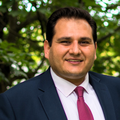
Spectroscopic insights on atomic level organization of zeolites
by Dr., Eddy Dib
Zeolites catalysts and adsorbents find their key-roles in the chemical industry by favoring desired reaction pathways. The increase of efficiency of chemical processes thanks to zeolites render them very attractive in addressing circular economy needs. In this line, the zeolite family offered indispensable catalysts and adsorbents for several key-reactions and it continues to show remarkable properties in new sustainable processes. This is due to their high thermal stability arising from their crystallinity, tunable chemical composition, acidity, and shape selectivity linked to their uniform porous networks.
It is tempting to view zeolites as perfectly crystalline porous materials, however, such view of long-range order is unable to give insights on their atomic level ordering; the latter are often complex features which are still difficult to characterize as they include acid sites, hydroxyl groups, and metallic species. Thus, beyond the intimate structure-spectroscopy relationships, the structure-property relationship is far from trivial and many questions are still open on e.g. acidity and sorption properties of zeolites. Thus, atomic scale spectroscopic characterization and modelling are required for a further understanding of zeolites and the improvement of their performance.
In this presentation, we will explore the insights derived from the combination of experimental and theoretical spectroscopic approaches, mainly NMR, and their potential in understanding the complexity of the atomic organization of zeolites e.g. localization of acid sites and silanol groups and the role of organic templates. The impact of the structural and dynamical information derived from these approaches on the understanding of catalysis and adsorption properties will be shown as well.
Lecture hall CH3, Faculty of Science, Hlavova 8, Praha 2
May 14, 2025 - (14:00 )
Zeolites catalysts and adsorbents find their key-roles in the chemical industry by favoring desired reaction pathways. The increase of efficiency of chemical processes thanks to zeolites render them very attractive in addressing circular economy needs. In this line, the zeolite family offered indispensable catalysts and adsorbents for several key-reactions and it continues to show remarkable properties in new sustainable processes. This is due to their high thermal stability arising from their crystallinity, tunable chemical composition, acidity, and shape selectivity linked to their uniform porous networks.
It is tempting to view zeolites as perfectly crystalline porous materials, however, such view of long-range order is unable to give insights on their atomic level ordering; the latter are often complex features which are still difficult to characterize as they include acid sites, hydroxyl groups, and metallic species. Thus, beyond the intimate structure-spectroscopy relationships, the structure-property relationship is far from trivial and many questions are still open on e.g. acidity and sorption properties of zeolites. Thus, atomic scale spectroscopic characterization and modelling are required for a further understanding of zeolites and the improvement of their performance.
In this presentation, we will explore the insights derived from the combination of experimental and theoretical spectroscopic approaches, mainly NMR, and their potential in understanding the complexity of the atomic organization of zeolites e.g. localization of acid sites and silanol groups and the role of organic templates. The impact of the structural and dynamical information derived from these approaches on the understanding of catalysis and adsorption properties will be shown as well.
Lecture hall CH3, Faculty of Science, Hlavova 8, Praha 2
1st year PhD students presentations
Lecture hall CH3, Faculty of Science, Hlavova 8, Praha 2
May 7, 2025 - (14:00 )

1st year PhD students presentations
Lecture hall CH3, Faculty of Science, Hlavova 8, Praha 2
April 23, 2025 - (14:00 )

Why Czech science does not meet its potential? Some unsolicited advice from Dejvice.
by Dr., Jan Kovalinka
The speaker will try to list some weak points of the Czech research environment from his personal viewpoint. He will try to argue that on top of insufficient financing,other important issues involve fragmentation of research (too many universities with too many faculties, too many study programs, too many institutes of the Academy); separation of executive power and responsibilities and poorly understood academic freedom; complicated legal system, fear of changes and prevailing inbreeding in the Czech Academia.
Collectively, these factors lead to continuous lagging of Czech science behind EU/US standards. This situation, 35 years after the regime change and 20 years after entering the EU is not acceptable and needs to change.
Several well known and already tested pathways to excellence will be reviewed and some positive examples shown.
We can and ought to do better.
Lecture hall CH3, Faculty of Science, Hlavova 8, Praha 2
April 16, 2025 - (14:00 )
The speaker will try to list some weak points of the Czech research environment from his personal viewpoint. He will try to argue that on top of insufficient financing,other important issues involve fragmentation of research (too many universities with too many faculties, too many study programs, too many institutes of the Academy); separation of executive power and responsibilities and poorly understood academic freedom; complicated legal system, fear of changes and prevailing inbreeding in the Czech Academia.
Collectively, these factors lead to continuous lagging of Czech science behind EU/US standards. This situation, 35 years after the regime change and 20 years after entering the EU is not acceptable and needs to change.
Several well known and already tested pathways to excellence will be reviewed and some positive examples shown.
We can and ought to do better.
Lecture hall CH3, Faculty of Science, Hlavova 8, Praha 2
1st year master students presentations
Lecture hall CH3, Faculty of Science, Hlavova 8, Praha 2
April 9, 2025 - (14:00 )
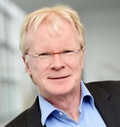
Mechanochemistry as a tool for catalyst synthesis and catalysis
by Dr., Ferdi Schueth
Mechanochemistry is a topic of high current interest and has been used for the synthesis of many different materials. Especially if done in ball mills, it is an excellent method for applications in catalysis, both in the synthesis of catalytic materials and in the catalytic reaction itself.
Ball milling approaches can be used for the synthesis of supported catalysts in a very simple manner by just mixing support and macroscopic metal powder, followed by milling. This does not only result in the formation of nanometer sized metal particles on the support, but also unusual alloys, which are hardly accessible by other methods, can be prepared. Ball milling can also lead to the conversion between polymorphs, and one of the most striking examples is the synthesis of corundum with very high surface area by the mechanochemically driven dehydrative phase transformation of boehmite, which, incidentally, can also be used to synthesize rare materials in the aluminum-oxygen-hydrogen system. The a-alumina thus produced is highly stable and is useful in different catalytic transformations.
Also catalytic reactions themselves can be driven by ball milling. This has been shown for a number of different reactions, such as CO-oxidation, preferential CO-oxidation in hydrogen, depolymerization of different polymers, or the chlorination of methane. The most spectacular examples for a catalytic reaction in a ball mill is the continuous synthesis of ammonia from the elements at atmospheric pressure and room temperature over an iron catalyst modified by metallic cesium.
The presentation will give an overview over different aspects of mechanochemistry in catalysis and also touch the issue of scaling up milling processes.
Lecture hall CH3, Faculty of Science, Hlavova 8, Praha 2
April 2, 2025 - (14:00 )
Mechanochemistry is a topic of high current interest and has been used for the synthesis of many different materials. Especially if done in ball mills, it is an excellent method for applications in catalysis, both in the synthesis of catalytic materials and in the catalytic reaction itself.
Ball milling approaches can be used for the synthesis of supported catalysts in a very simple manner by just mixing support and macroscopic metal powder, followed by milling. This does not only result in the formation of nanometer sized metal particles on the support, but also unusual alloys, which are hardly accessible by other methods, can be prepared. Ball milling can also lead to the conversion between polymorphs, and one of the most striking examples is the synthesis of corundum with very high surface area by the mechanochemically driven dehydrative phase transformation of boehmite, which, incidentally, can also be used to synthesize rare materials in the aluminum-oxygen-hydrogen system. The a-alumina thus produced is highly stable and is useful in different catalytic transformations.
Also catalytic reactions themselves can be driven by ball milling. This has been shown for a number of different reactions, such as CO-oxidation, preferential CO-oxidation in hydrogen, depolymerization of different polymers, or the chlorination of methane. The most spectacular examples for a catalytic reaction in a ball mill is the continuous synthesis of ammonia from the elements at atmospheric pressure and room temperature over an iron catalyst modified by metallic cesium.
The presentation will give an overview over different aspects of mechanochemistry in catalysis and also touch the issue of scaling up milling processes.
Lecture hall CH3, Faculty of Science, Hlavova 8, Praha 2
1st year master students presentations
Lecture hall CH3, Faculty of Science, Hlavova 8, Praha 2
March 26, 2025 - (14:00 )

Key Concepts for Biomass Burial as a Negative Emissions Technology
by Dr., Jeff Amelse
Terrestrial Storage of Biomass (TSB) is a Negative Emission Technology for removing CO2 already in the atmosphere. Compared to other NETs, TSB is a natural, carbon- and energy-efficient, and low-cost option. Nature performs the work of removal by growing biomass via photosynthesis. The key to permanent carbon sequestration is to bury the biomass in pits designed to minimize decomposition. Decomposition of wood follows the same path as decomposition of municipal waste in landfills. A review of the chemistry of biomass formation and decomposition leads to key concepts for TSB burial pit design. Decomposition is inherently slow due to the cross-linking and dense packing of cellulose. Like catalytic reactions, decomposition attack can only occur at the surface. Methane formation from even asmall amount of decomposition has been raised as a concern due to its high global warming potential. This concern is shown to be unfounded due to a great difference in time constants for methane formation and its removal from the air by ozone oxidation. The small extent of woody biomass decomposition is spread over hundreds to thousands of years. However, methane has a short lifetime in air of only about 12 years. A model that couples the exceedingly slow rate of methane formation with the fast
removal by oxidation predicts that methane will peak at a very small fraction of the buried biomass carbon within about 10 years and then rapidly decay towards zero. The implication is that no additional equipment needs to be added to TSB to collect and burn
the methane as is done in municipal landfills.
Lecture hall CH3, Faculty of Science, Hlavova 8, Praha 2
March 12, 2025 - (14:00 )
Terrestrial Storage of Biomass (TSB) is a Negative Emission Technology for removing CO2 already in the atmosphere. Compared to other NETs, TSB is a natural, carbon- and energy-efficient, and low-cost option. Nature performs the work of removal by growing biomass via photosynthesis. The key to permanent carbon sequestration is to bury the biomass in pits designed to minimize decomposition. Decomposition of wood follows the same path as decomposition of municipal waste in landfills. A review of the chemistry of biomass formation and decomposition leads to key concepts for TSB burial pit design. Decomposition is inherently slow due to the cross-linking and dense packing of cellulose. Like catalytic reactions, decomposition attack can only occur at the surface. Methane formation from even asmall amount of decomposition has been raised as a concern due to its high global warming potential. This concern is shown to be unfounded due to a great difference in time constants for methane formation and its removal from the air by ozone oxidation. The small extent of woody biomass decomposition is spread over hundreds to thousands of years. However, methane has a short lifetime in air of only about 12 years. A model that couples the exceedingly slow rate of methane formation with the fast
removal by oxidation predicts that methane will peak at a very small fraction of the buried biomass carbon within about 10 years and then rapidly decay towards zero. The implication is that no additional equipment needs to be added to TSB to collect and burn
the methane as is done in municipal landfills.
Lecture hall CH3, Faculty of Science, Hlavova 8, Praha 2
